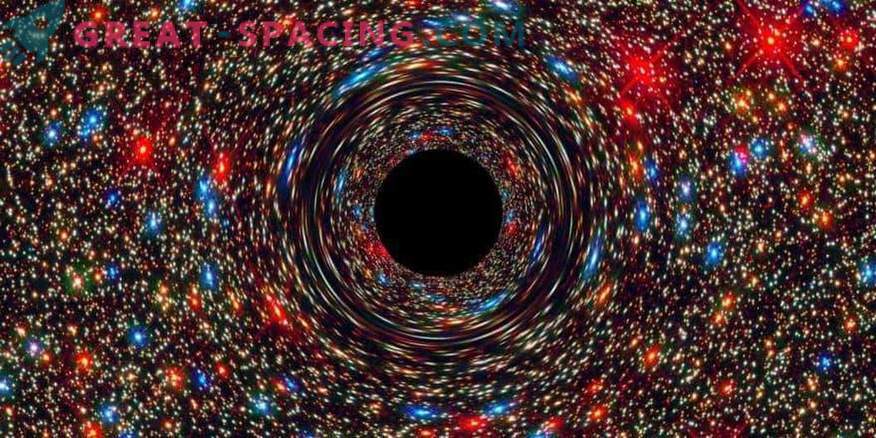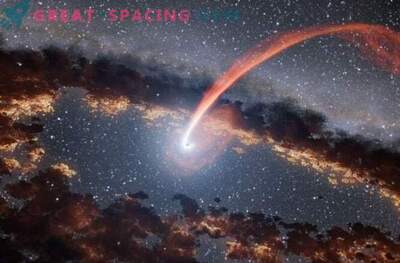
The picture shows a supermassive black hole in the galactic core. The dark area in the center is the event horizon, where light cannot avoid gravitational capture. The powerful gravitational forces of a black hole distort the surrounding space, blurring and stretching the light of background stars
Using data from the X-ray telescope Chandra on galaxies with a distance of 3.5 billion light years, scientists have found the most massive black holes among the ever discovered in the universe. The analysis shows that ultramassive black holes grow faster than stars in their native galaxies.
In search of these monsters, researchers had to explore 72 galaxies living in the centers of the brightest and massive galactic clusters. A black hole is an invisible celestial object whose gravitational force is so powerful that even the light has no chance of salvation. Most often formed after the death of a massive star. The most interesting effect is the distortion of time around them. Einstein's theory of relativity says that time flows more slowly in strong gravitational fields. Scientists have determined the mass of black holes found in these galactic clusters, by analyzing radio waves and X-rays. It turned out that the new data is 10 times higher than the early findings. In addition, almost half of black holes are 10 billion times more massive than the Sun. This leads us to a unique class - ultramassive black holes.
Destructive power
No need to think that the galaxy remains safe, hiding these terrible monsters. The higher the massiveness of the black hole, the greater the force. But do not worry about the Milky Way. Our supermassive black hole Sagittarius A is not very active and rather resembles a sleeping volcano.
Why study these remote objects?
The study of these giants allows us to show that such objects have a serious impact on the galactic regions and the Universe in perspective. These are the most powerful features. Do not forget that the galaxies are the building blocks of the universe, which means you first need to understand the black holes.










































